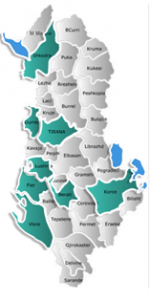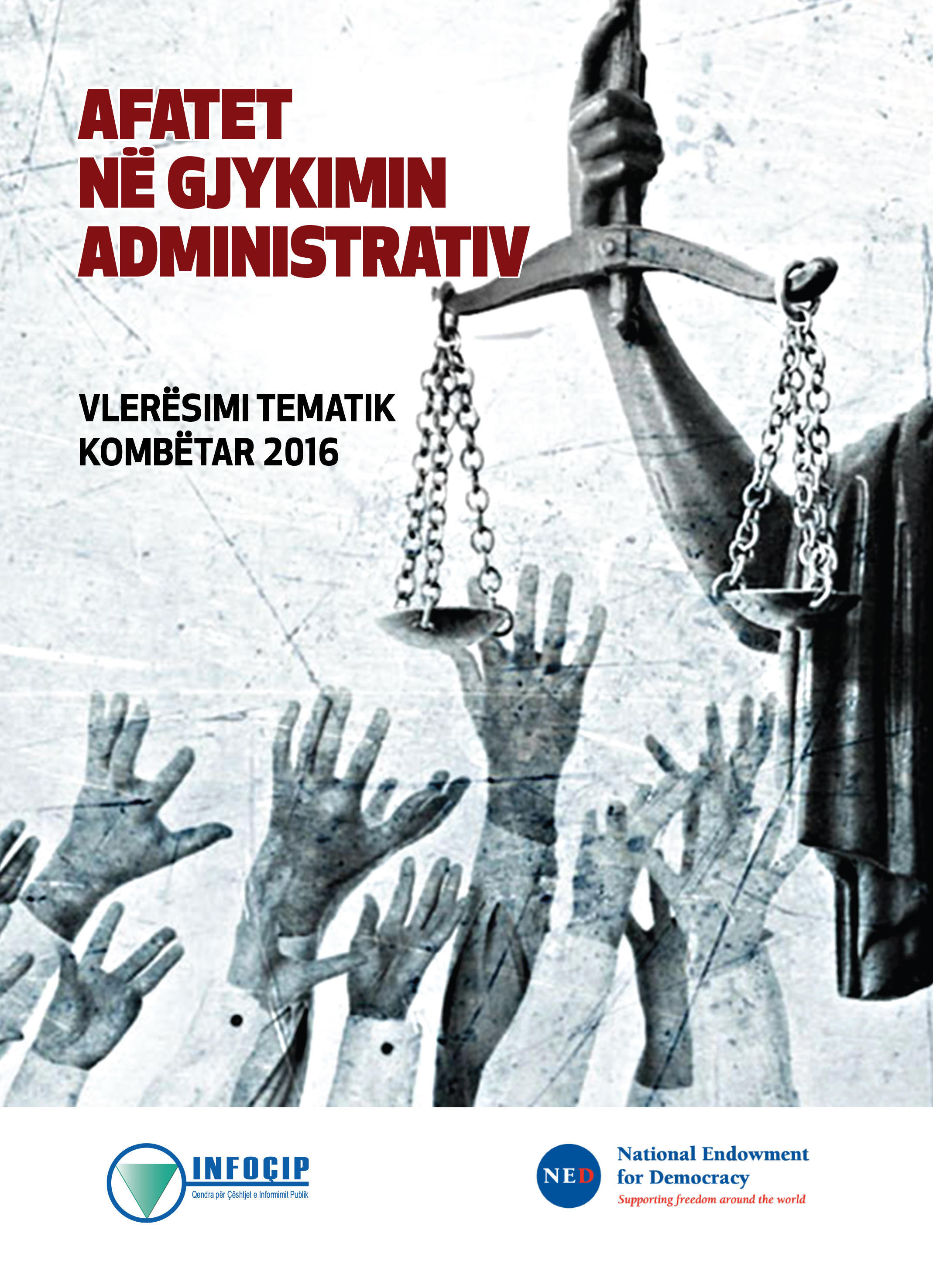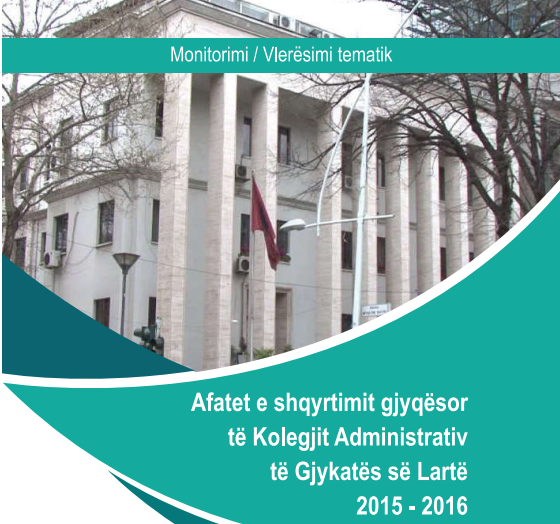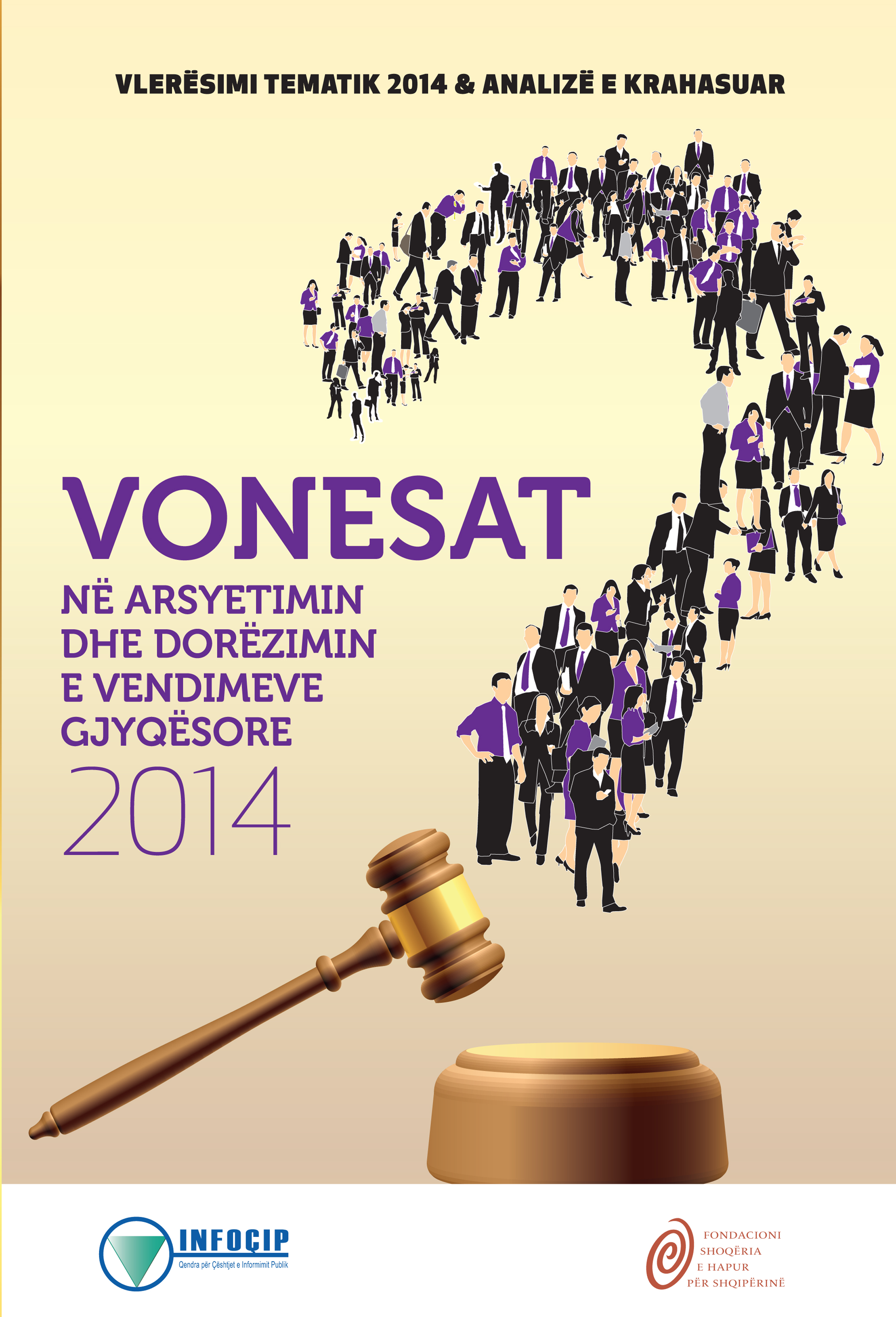New Right to Information law enacted by the Albanian Parliament. “Proactive disclosure” incorporated, fines for non-compliance
A new Albania right to information law has been enacted by the Albanian Parliament on September 18th, 2014. The new law represents a substantial success of both decision makers and the main civil society operators in Albania who advocated for long the need for a totally new bill on RTI.
The Center for Public Information Issues (alb: INFOCIP) was one of the partner which offered to the drafting team its extended expertise on developing the new approach materialized into this new law.
For the first time ever, the law encompasses the new concept of “proactive disclosure”, based on INFOCIP’s recommendations and extended research. “This may be considered “groundbreaking”- said Gerti Shella, executive Director of INFOÇIP.
INFOCIP congratulates the SOROS Foundation for its commitment to drafting and preparing this new law, in the spirit of cooperation with main actors of the civil society.
Some of the far-reaching changes introduced by the new law are the following:
– Setting up a new body, charged with supervising and monitoring compliance with the new law: the existing Commissioner for the Protection of Personal Data is vested with extensive competences and disciplinary powers and is renamed to Commissioner for the Right to Information and Protection of Personal Data.
– New, shorter deadlines: the deadlines for responding to requests are shortened to 10 days.
– Proactive dissemination of information: public authorities are now obliged to make certain categories of information available proactively.
– Introduction of a more extensive definition of the term public information: under the new law, public information is defined as any data registered in any form and format, maintained by a public authority.
– Introduction of a more extensive definition of the term public authority: under the new law, the term is extended and now encompasses commercial companies where the state holds the majority of shares, as well as any physical or legal entity that exercises public functions in areas such as education, health, energy, and telecommunications.
– Ensuring a more effective response to information requests: under the new law, every public authority is obliged to designate a Coordinator for the Right to Information whose task will be to supervise the authority’s responses to information requests.
– Introduction of dissuasive sanctions for failure to respect the right to information: the new law provides for heavy administrative sanctions, in the form of monetary fines, for officials violating the provisions of the law.
Law No. 119/2014, which replaces a 1999 law, was adopted by Parliament Sept. 18, published in the Official Gazette Oct. 17 and will enter into force 15 days after its publication.
LAST RELEASED PUBLICATION
MONITORING REPORT
Recent reports/studies
Partners / Donors
Local Branches
- Citizens' Transparency Office, Durrës (19)
- Citizens' Transparency Office, Korça (9)
- Election Situation Chamber (11)
- JUDICIARY (1)
- NED (11)
- www.vendime.al (5)
Foto lajm

- CPII anounces the monitoring result for Durres Municipal Council. It must be re-elected
Where we work














